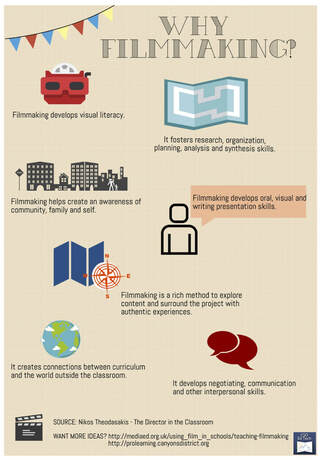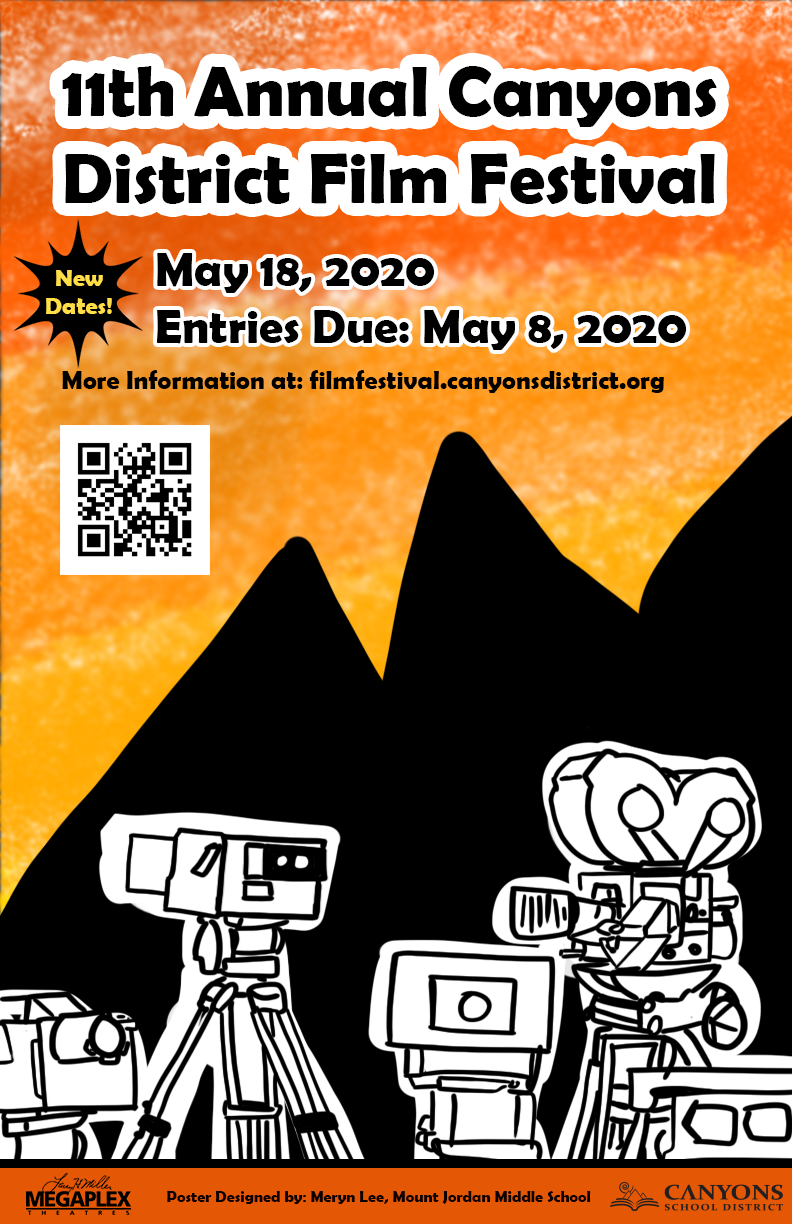Film Festival Teacher Resources
|
Editing begins (analysis - synthesis - presentation) and finally the finished videos are presented in the classroom and beyond."
- Filmmaking develops visual literacy.
- It fosters research, organization, planning, analysis and synthesis skills.
- It develops oral, visual and writing presentation skills.
- It develops negotiating, communication and other interpersonal skills.
- It creates awareness of community, family and self.
- It creates connections between curriculum and the world outside the classroom.
- It is a rich method to explore content and surround the project with authentic experiences.
Teacher Resources:

Lesson Plans:
Browse the following lesson plans to get ideas for using filmmaking and digital storytelling in your classroom. 
Templates:
Creating a storyboard is an essential part of any film/video project and can tie into any core curriculum you and your students are studying. Here are some sites that can help you with the storyboarding process: |

Websites:
There are a lot of online resources to help teachers utilize digital storytelling and filmmaking in the classroom. Here are a few of our favorites:

Copyright:
Be sure to teach your students to only use materials in their films that they have permission to use. Any music, photos, and other creative works borrowed from others must be used with express written permission, under fair use guidelines, or under a Creative Commons license. Teaching students to properly credit others' creative works is an important digital citizenship skill. For more information about copyright, please visit the Copyright, Creative Commons and Digital Citizenship and Online Safety pages of our site. |




